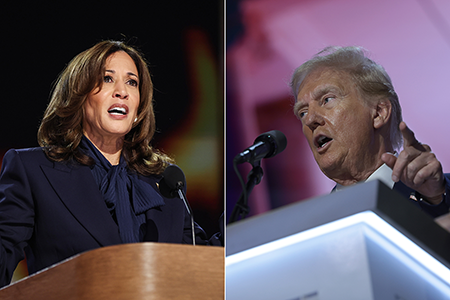Election 2024: The Next U.S. President’s Nuclear Challenges
September 2024

Weeks before the United States elects a new president, the global nuclear security environment could hardly be more precarious. Russia continues to raise the specter of escalating its war on Ukraine to nuclear use; Iran and North Korea persist in advancing their nuclear programs; China is moving to steadily expand its nuclear arsenal; the United States and Russia have costly modernization programs underway; and the war in Gaza threatens to explode into a region-wide catastrophe entangling Iran and nuclear-armed Israel, among other countries. Meanwhile, Russia and China are refusing to enter arms control talks with the United States, new countries are raising the possibility of acquiring nuclear weapons and decades of arms control treaties are unraveling. The situation has driven Rafael Mariano Grossi, director-general of the International Atomic Agency, to warn in an interview with The Financial Times on August 26 that the global nonproliferation regime is under greater pressure than at any time since the end of the Cold War. The U.S. presidential election campaign has not engaged publicly on most of these issues in any serious way despite the fact that whichever candidate wins will, once inaugurated, immediately inherit the sole authority to launch U.S. nuclear weapons. In an effort to foster debate and prudent decision-making, Arms Control Today asked a group of respected nuclear experts to consider the challenges facing the president ahead.—CAROL GIACOMO
- Avoiding Nuclear War Through Nuclear Failsafe
By Steven Andreasen - How to Spend $1 Trillion for the Military?
By Jessica Sleight - Preventing a Resumption of Nuclear Testing
By Lynn Rusten - Russia and Its Nuclear Modernization Plans
By Amy J. Nelson - Dealing With a China That Will Not Talk
By James M. Acton - Gaza Tensions Complicate Iranian Nuclear Threat
By Barbara Slavin - Grappling With North Korea’s Expanding Arsenal
By Jean H. Lee - How Will the Russian War in Ukraine End?
By James Goldgeier
